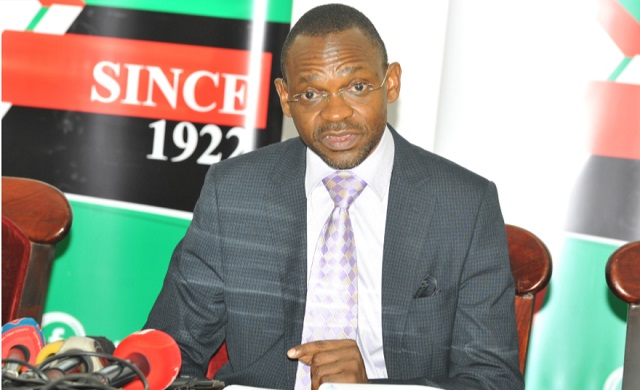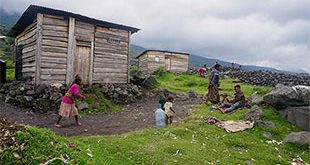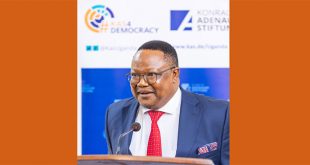
How ‘survival’ is destroying university
Kampala, Uganda | JOSEPH WERE | Joel Rukoroboza is one of many parents affected by the strike at Makerere University. He has a daughter who is in her second year studying a Bachelor of Medicine at the university. He pays tuition of Shs1.4 million per semester for her. This year, his son joined the university to study the same course. But he is paying tuition of Shs1.8 million for him.
Since Makerere University students started striking over increasing tuition, Rukoroboza has watched the administration with suspicion. How can they insist there has been no increment in tuition fees for students? Rukoroboza is clearly paying an addition of about Shs400, 000 for his son than his year two daughter. He also pays functional fees of about Shs1 million and Shs20, 000 per year as fees for the National Council of Higher Learning.
Rukoroboza agrees with President Yoweri Museveni that Makerere University has the lowest fees structure in the East African region. He researched it. But he is also aware that if the tuition fees keep going up by 15% per year for each new set of students, then to study medicine will cost Shs7 million per semester by 2029. That is Shs70 million for the five year course. How many Ugandans will be able to pay that?
Is that not what the striking students mean when they say they are “fighting for the cause of our future generations”? Is it so difficult to see that a student at university today might fight for future generations?
Lecturers’ higher pay
What about the university managers; why are they insisting that students must pay more? Is it not obvious that it is because they want to earn higher salaries? After all, staff salaries account for 56% of budgets of public universities, according to the Ministry of Finance. Material supplies take 11.96%, student costs 11.12%, infrastructure 1.85%, utilities 4.37%, staff development 1.37%, and research 0.82%. But should the university managers be allowed to squeeze more money from students so that the staff can earn higher salaries? Why doesn’t the government pay them?
The lecturers have a target. They want each professor to earn Shs15 million per month as President Yoweri Museveni promised them in 2015. Back then they were earning Shs2 million.
Today Vice Chancellors earn Shs11.8 million per month from Shs11.2 million, Deputy VCs Shs9.6 million to Shs10.1 million, and professors Shs9.6 from 9.1 million shillings. Associate professors get Shs9 million from Shs8.5 million and a senior lecturer Shs8 million from Shs7.7 million. The government announced these high salaries in January.
Earlier, based on a salary structure the government announced in April 2017, Vice Chancellors of public universities were earning Shs10 million up from Shs9 million monthly, professor Shs8.5 million from Shs8 million and associate professor Shs8 million from Shs7.5 million.
But by late 2018 the lecturers were warning that they would enter a nationwide strike effective January 2019 unless their salary demands were met.
The truth is the government has been paying Makerere University staff more and more money each year. But they keep on wanting more.
According to Makerere’s Acting University Secretary, Yusuf Kiranda, the government gave the university Shs360 billion this financial year and Shs166 billion went to payment of salaries. According to the Ministry of Finance’s Budget Monitoring and Accountability Unit (BMAU) briefing paper of June 2018, the government funding for public universities has risen from Shs167.94 billion in FY 2012/13 to Shs606.09 billion during FY2017/18. Most of this goes to staff salaries. Of course public universities are not funded sufficiently to cover the cost of inputs in order to offer quality education. In fact, for the last five years, actual releases have been lower than approved budgets.
But the Ministry of Finance says the budgets for money that public universities plan to get from private paying students – the so called Non-Tax Revenue (NTR) have been increasing. Public universities are increasingly dependent on collections from private students to deliver the education service. Is that fair?
VC Nawangwe’s problem
Joel Rukoroboza is a fictitious parent designed to illustrate how the increase in tuition fees is affecting students and parents at Makerere University.
But the arguments and figures raised are real. They are what many people expected the Vice Chancellor, Prof. Barnabas Nawangwe, to bring up with the government. That is what previous VC’s did. When Nawangwe in 2017 campaigned to become vice chancellor on a `strike free’ plank, many believed him.
They saw him as someone who knows a lot about the money and administration problems of the university, having been in charge of its finance and administration. Some of them admired his more forcefulness when compared to his predecessor, Prof. Ddumba Ssentamu; a gentle giant who approached management like he was walking on eggshells.
Nawangwe charmed them with his smiles and calming blue suits against the commanding dark blue or black. He also spoke a lot about humility and team work. But Nawangwe soon revealed his tough side and the financial miracles he promised failed to materialize.
Nawangwe had campaigned under an ambitious finance programme. He promised to get private investors to use the university’s prime land to put up a teaching hospital, five star hotel, upper and middle income apartments and modern students hostels. But he now wants students to pay more to meet his staff’s demand for higher salaries and allowances.
Nawangwe was not always like this. In fact, when he campaigned in 2017, his main challenger was former VC Venansious Baryamureeba who was seen as a true pro-government person. But Nawangwe, it appears, is determined to show that he is more pro-government than anyone. It is possibly a survival instinct. But he has been winning high praise from President Museveni for his tough handling of the university affairs.
Nawangwe has shown he cannot speak up. That is partly because of growing general intolerance of President Museveni’s government to alternative views. But Nawangwe is keeping his head down at a time of growing corruption in financial management on the Hill and increasing militancy among students.
 The Independent Uganda: You get the Truth we Pay the Price
The Independent Uganda: You get the Truth we Pay the Price


